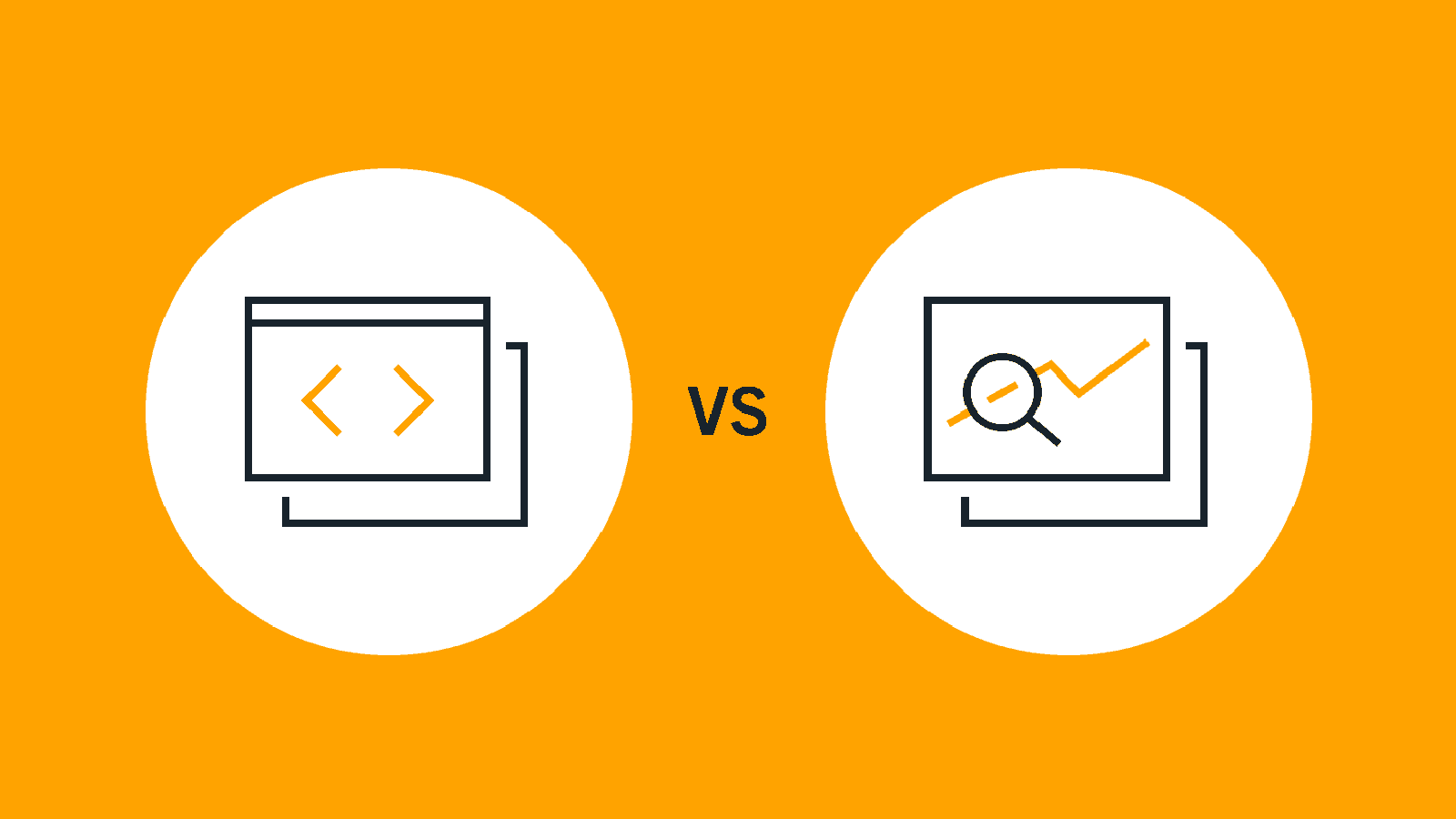What is the difference between on-page and off-page SEO?

As businesses continue to expand their online presence, it has become increasingly important to optimize their website for search engines. Search engine optimization (SEO) involves a variety of techniques to improve a website’s ranking on search engine results pages (SERPs). Two essential components of SEO are on-page and off-page optimization. In this article, we’ll delve into the differences between these two concepts and their importance for website optimization.
On-page SEO
On-page SEO refers to the techniques and strategies used to optimize a website’s content and HTML source code. This includes optimizing individual web pages to rank higher on SERPs and earn more relevant traffic. The main goal of on-page SEO is to make a website more user-friendly and relevant to the user’s search intent.
Importance of On-page SEO
On-page SEO is essential for both search engines and users. Search engines use on-page SEO elements such as title tags, meta descriptions, header tags, and internal links to understand the content and purpose of the web page. Users, on the other hand, are more likely to stay on a website that is easy to navigate, loads quickly, and provides relevant content.
Techniques for On-page SEO
Some common on-page SEO techniques include optimizing title tags and meta descriptions, using header tags (H1, H2, H3, etc.) to organize content, using descriptive URLs, adding alt text to images, and optimizing page speed.
Best practices for On-page SEO
To optimize a website for on-page SEO, it is important to focus on high-quality content, keyword research, and user experience. Other best practices include:
- Writing descriptive, keyword-rich title tags and meta descriptions
- Organizing content using header tags
- Using descriptive URLs
- Adding alt text to images
- Optimizing page speed
- Making sure the website is mobile-friendly
- Including internal and external links
- Avoiding keyword stuffing and duplicate content
Off-page SEO
Off-page SEO refers to the techniques and strategies used to improve a website’s reputation and authority through external factors such as backlinks, social media engagement, and online mentions. The main goal of off-page SEO is to increase the website’s visibility, credibility, and popularity.
Importance of Off-page SEO
Off-page SEO is crucial for improving a website’s ranking on SERPs. Search engines consider external factors such as backlinks, social media engagement, and online mentions when determining a website’s authority and relevance. A high number of high-quality backlinks, for example, signals to search engines that other websites consider the content on the website to be valuable and informative.
Techniques for Off-page SEO
Some common techniques for off-page SEO include building high-quality backlinks, engaging with social media, guest blogging, participating in online forums and communities, and creating shareable content.
Best practices for Off-page SEO
To optimize a website for off-page SEO, it is important to focus on creating high-quality content that is shareable and linkable. Other best practices include:
- Building high-quality backlinks from reputable sources
- Engaging with social media and building a strong social media presence
- Guest blogging on relevant websites
- Participating in online forums and communities
- Creating shareable and linkable content
- Monitoring and managing online reviews and mentions
Differences between On-page and Off-page SEO
The main difference between on-page and off-page SEO is the focus of optimization. On-page SEO focuses on optimizing a website’s content and HTML source code, while off-page SEO focuses on improving the website’s reputation and authority through external factors such as backlinks and social media engagement.
Similarities between On-page and Off-page SEO
Both on-page and off-page SEO are important for improving a website’s ranking on SERPs. They both involve optimizing a website’s content and reputation to make it more valuable and relevant to users.
Differences between On-page and Off-page SEO
The primary differences between on-page and off-page SEO include:
- Focus of optimization: On-page SEO focuses on optimizing a website’s content and HTML source code, while off-page SEO focuses on improving the website’s reputation and authority through external factors such as backlinks and social media engagement.
- Techniques used: On-page SEO techniques include optimizing title tags, header tags, and meta descriptions, while off-page SEO techniques include building high-quality backlinks, engaging with social media, and creating shareable content.
- Timeframe for results: On-page SEO can yield results in a relatively short timeframe, while off-page SEO can take longer to see results.
Importance of Balancing On-page and Off-page SEO
Balancing on-page and off-page SEO is essential for improving a website’s ranking on SERPs. While on-page SEO is important for making a website more user-friendly and relevant, off-page SEO is important for improving the website’s reputation and authority.
Best practices for Balancing On-page and Off-page SEO
To balance on-page and off-page SEO, it is important to focus on creating high-quality content that is both user-friendly and shareable. Other best practices include:
- Building high-quality backlinks from reputable sources
- Engaging with social media and building a strong social media presence
- Guest blogging on relevant websites
- Optimizing title tags, header tags, and meta descriptions
- Creating shareable and linkable content
- Monitoring and managing online reviews and mentions
Conclusion
In conclusion, on-page and off-page SEO are both important for improving a website’s ranking on SERPs. While on-page SEO focuses on optimizing a website’s content and HTML source code, off-page SEO focuses on improving the website’s reputation and authority through external factors such as backlinks and social media engagement. Balancing on-page and off-page SEO is essential for creating a user-friendly, valuable, and relevant website.
FAQs
Why is on-page SEO important?
On-page SEO is important for making a website more user-friendly and relevant to the user’s search intent.
What are some examples of on-page SEO techniques?
Examples of on-page SEO techniques include optimizing title tags and meta descriptions, using header tags to organize content, using descriptive URLs, and optimizing page speed.
How long does it take to see results from off-page SEO?
It can take longer to see results from off-page SEO compared to on-page SEO. The timeframe for results can vary depending on factors such as the quality of the backlinks and the level of social media engagement.
What are some best practices for off-page SEO?
Some best practices for off-page SEO include building high-quality backlinks from reputable sources, engaging with social media, guest blogging on relevant websites, and creating shareable and linkable content.
Can on-page SEO alone improve website rankings?
On-page SEO alone can improve website rankings to a certain extent, but it is important to also focus on off-page SEO for long-term success in search engine rankings.
Michael
With over 20 years experience in web design, SEO and website promotion I always give you an expert advice in regard to any issues related to your Site Design, SEO, Internet Marketing, Promotion, Backlinks, Site Content. In order to help you find out what is missing or can be improved and get higher rankings in Google and more traffic.
Recommended Posts

The World of Wearable iGaming Tech
May 17, 2024

Overview of Business Finance in Malta
May 17, 2024

Malta’s iGaming Frontier – Best Brands
May 17, 2024




